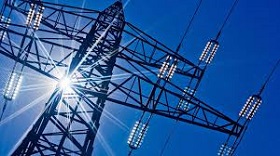Analytics, Baltic States – CIS, Energy, Energy Market, Estonia, EU – Baltic States, Good for Business, Russia
International Internet Magazine. Baltic States news & analytics
Sunday, 01.03.2026, 05:02
Estonia: Net profit of Eesti Energia grows to EUR 106 mln in 2018
 Print version
Print version |
|---|
The sales revenue of state-owned Estonian energy group
Eesti Energia grew 16% on year to 875 mln euros in 2018, while the
company's net profit rose 5% to 106 mln euros.
Earnings before interest, taxes, depreciation, and
amortization (EBITDA) amounted to 283 mln euros, 7% more than the year before, Eesti Energia said.
Andri Avila, CFO
of the group, said that the result is satisfying. "Even though the entire
year was strong in terms of financial indicators, a large contribution to
achieving the final result was made by a very good fourth quarter, where sales
revenue totaled 261 mln euros, EBITDA totaled 95 mln euros and we earned a net
profit of 40 mln euros," Avila said.
According to the CFO, increased market prices of oil and
electricity and increased shale oil production were the main factors to help
increase the company's revenue and profit. At that, the market price of
electricity in the Nord Pool price area Estonia rose 42% on year.
"There are two main reasons for such a big increase in
the market price of electricity. Firstly, the level of Scandinavian hydro
resources fell to a significantly lower level than average in the second half
of 2018 and this increased the prices of electricity in addition to Scandinavia
also in the Baltics. The second important reason for the increase in
electricity price was the three-fold increase in the price of CO2 quotas
compared with the average level of 2017. As a large part of electricity in
Europe is still produced from fossil fuels, the CO2 price hike raised the
market price of electricity very widely," Avila said.
However, the rise in CO2 prices in the Nord Pool market area
has not brought about the effect that the European Union has wanted in the
form of higher taxation of fossil fuel power generation, he said.
The electricity sales volume of Eesti Energia was 9.2 terawatt-hours in 2018, remaining on the same
level as in 2017. Thanks to an increased market price and the improved
reliability of oil plants, Eesti Energia
sold 393,000 tons or 6% more shale oil than in 2017. The production of shale
oil reached a record 411,000 tons.
"The aim of EU's CO2 policy is to support increasing
the production of energy from renewable sources. What we actually saw in the
Baltics and in Finland in 2018 was that more Russian-origin fossil electricity
than ever, or over 13 terawatt-hours, reached our market through Lithuania and
Finland, which is equal to 1.5-fold annual consumption in Estonia. Even though
unlike EU producers, Russian electricity producers do not need to purchase a
CO2 quota for electricity production, they can participate in the same market
with their production as EU electricity producers. This creates an unfair
competition situation and, in conclusion, kills the EU industry," Avila
said.
The sale of electricity and provision of energy services was
launched in 2018 in Finland and Sweden, where the company is currently focusing
on growing its customer portfolio. Eesti Energia is selling energy and energy
solutions on a total of six domestic markets, including Estonia, Latvia,
Lithuania, Poland, Finland and Sweden.
In 2018, the group invested 215 mln euros in fixed assets,
which is 49 % more than the previous year. The largest share of this
amount was made up of investments to improve the electricity network amounting
to 82 mln euros. As a result of long-term investments, two thirds of the
network of distribution network operator Elektrilevi
is weatherproof by now. Last year, Eesti
Energia made the final payment to General Electric (GE) for the Auvere
power plant. The total cost of the Auvere plant was 610 mln euros.
"Auvere power plant is Eesti Energia's most efficient and clean controllable electricity
production device, which is important in terms of Estonia's security of supply.
With the Auvere power plant, we are also able to produce renewable energy in
the amount of 50%. Good opportunities for using that capacity are created by
the EU's renewable energy statistics trade, with the help of which we could
earn export income with the support of other EU countries," Avila said.
"However, the year's biggest investment was the
acquisition of Baltic wind energy producer Nelja
Energia. As a result of that transaction, Eesti Energia's subsidiary Enefit
Green became the region's leading renewable energy producer with a
presentable development portfolio. In addition, the Auvere power plant and the
production assets of the acquired Nelja
Energia will help replace the older Narva power blocks, which will stop
work this year, in the amount of 600 megawatts," he added.
Eesti Energia has
made a proposal to the owner to pay a dividend of 57 mln euros for 2018, to
which income tax in the amount of approximately 14 mln euros will be added. The
tax footprint of the Eesti Energia group in Estonia last year was 224 mln
euros. Of this, 66 mln euros was made up by taxes involving the workforce,
which makes Eesti Energia the largest
labor tax payer in Estonia.








 «The Baltic Course» Is Sold and Stays in Business!
«The Baltic Course» Is Sold and Stays in Business!

